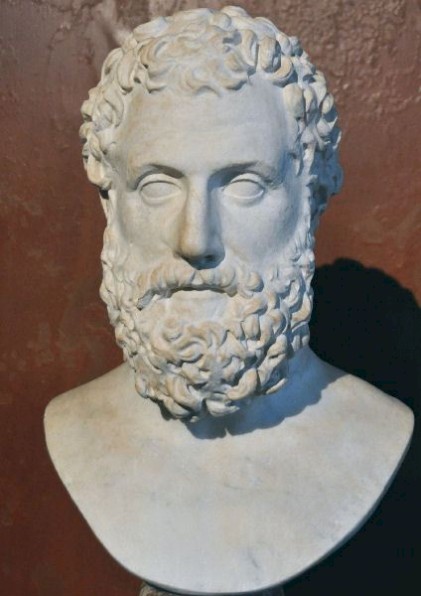Aeschylus
Aeschylus (525-456): Athenian poet, author of many tragedies, of which seven survive.

Together with Sophocles and Euripides, Aeschylus (525-456) is one of the best-known Athenian tragic poets. In his plays, he addresses complex theological problems. For example, in the trilogy Agamemnon - Choephoroi - Eumenides, he describes how the gods punish a family for a series of murders. The Persians is a superb play, in which the Athenian victory at Salamis (480) is celebrated, written seven years after the event; the remarkable aspect is that Persians are "round" characters, whereas their opponents are almost faceless. Of his remaining tragedies, the Seven against Thebes is a very static play, the Suppliants celebrates the legendary past of Athens, whereas the Prometheus asks why an all-powerful god should be good (the authorship is disputed).
Aeschylus was highly esteemed; fifty years after his death, the comic poet Aristophanes wrote a play, The Frogs, in which Aeschylus and Euripides are presented as the greatest playwrights. Aeschylus himself did not care about his fame: he wanted to be remembered not for his tragedies, but for the fact that he had fought at Marathon, where his brother had been killed in action.